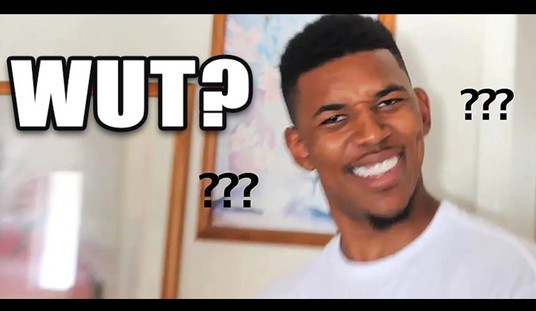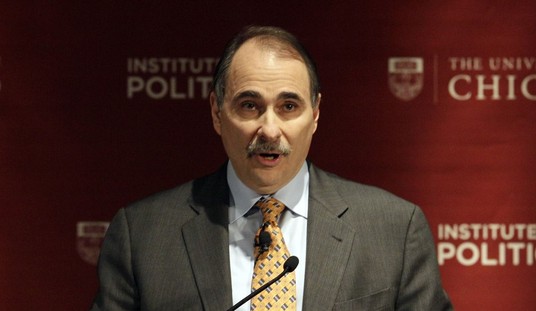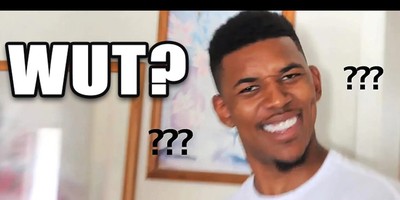For legal nerds, the hits keep coming today. First, Joe Biden took the dictatory step of trying to declare that the Equal Rights Amendment is now officially part of the Constitution. Next CNN is declared liable in its huge defamation case, as covered by Sam J. Last we heard, they are arguing about punitive damages, because that is still left for the jury to determine. And in addition to that fun, we find out that the Supreme Court has upheld the so-called TikTok ‘ban.’ For starters, here’s the decision:
U.S. Supreme Court Upholds TikTok Ban
— CSPAN (@cspan) January 17, 2025
Read opinion (27 pages) --> https://t.co/5XiQT7qshr pic.twitter.com/XQ58STaZit
The entire file is only twenty-seven pages, with two concurrences. A concurrence is basically when a justice says that they agree with the ultimate bottom line but either they have different reasons for reaching that conclusion, or they just wanted to add something to the analysis of the majority opinion.
Also, if you choose to read the majority opinion, you might notice it is ‘per curiam’ which is legal Latin code for ‘there is no official author of the opinion.’ They did something similar with the Trump disqualification case. But unlike with the disqualification case, this author doesn’t have any guess as to who wrote actually wrote it.
To break it down more, first, it is not quite correct to say it is a ‘ban.’ TikTok can keep operating so long as it removes China’s control over it, which leads to many people saying things like this:
ByteDance and its Chinese Communist masters had nine months to sell TikTok before the Sunday deadline. The very fact that Communist China refuses to permit its sale reveals exactly what TikTok is: a communist spy app. The Supreme Court correctly rejected TikTok’s lies and…
— Tom Cotton (@SenTomCotton) January 17, 2025
So, it’s probably more accurate to call it a ‘Ban on Chinese Control Over TikTok,’ but that doesn’t exactly roll off the tongue.
Furthermore, regular readers would know that this author analyzed the ban when it was just a proposed bill, here. We will say that we thought that this law put dangerous power into the hands of the president, giving him or her in theory the power to shut down the New York Post website because they allegedly were doing the bidding of Putin. We also suggested a number of changes that might fix the problems with the bill, but if we are going to be honest, we haven’t looked at the final law to see if it still has the same problems.
Recommended
But crucially, this case is what is called an ‘as applied’ challenge. That means that even if the law is unconstitutional in many applications, the Supreme Court will uphold it if it constitutional when applied to these particular parties. So, if on January 19, 2025, Joe Biden declares that the New York Post has to be sold off because it is being controlled by the Ruskies because he still pretends the Hunter Biden laptop story is Russian disinformation—or even true information that the Russians wanted them to publish—then the courts would still be able to say ‘this law might have been constitutional when applied to TikTok, but it isn’t when applied to the New York Post.’ This author isn’t sure why this is an ‘as applied’ challenge, but it is, and therefore, many of the concerns we pointed out wouldn’t even be relevant in this case.
For our money, we like Gorsuch’s concurrence better than any of the other opinions. It is only five pages, so you might want to read the whole thing, but we several parts were worth highlighting:
We have had a fortnight to resolve, finally and on the merits, a major First Amendment dispute affecting more than 170 million Americans. Briefing finished on January 3, argument took place on January 10, and our opinions issue on January 17, 2025. Given those conditions, I can sketch out only a few, and admittedly tentative, observations.
We think he is right to point out that maybe the Supreme Court was having to resolve this too quickly, creating a greater risk of mistakes. Of course the other problem is that the ban was set to kick in on Sunday. But in that case, we think the Supreme Court should have actually suspended the ban until they had time to make their decision.
Some other highlights:
First, the Court rightly refrains from endorsing the government’s asserted interest in preventing ‘the covert manipulation of content’ as a justification for the law before us. …
Second, I am pleased that the Court declines to consider the classified evidence the government has submitted to us but shielded from petitioners and their counsel.
Yes, that’s right. The Biden administration wanted the Supreme Court to consider secret evidence that the other side is not allowed to see.
And here’s the meat of his argument:
Fourth, whatever the appropriate tier of scrutiny, I am persuaded that the law before us seeks to serve a compelling interest: preventing a foreign country, designated by Congress and the President as an adversary of our Nation, from harvesting vast troves of personal information about tens of millions of Americans. The record before us establishes that TikTok mines data both from TikTok users and about millions of others who do not consent to share their information. … According to the Federal Bureau of Investigation, TikTok can access ‘any data’ stored in a consenting user’s ‘contact list’—including names, photos, and other personal information about unconsenting third parties.
This author is a lawyer and we have a professional responsibility to keep our clients’ secrets (when they are covered by privilege or confidentiality). That includes taking reasonable steps to secure any data and for that reason, we have refused to install TikTok on any device.
Anyway, on to some reactions:
Breaking: The Supreme Court upheld a federal law that would ban the Chinese-owned social media platform TikTok just two days before the bipartisan divestiture law is slated to take effect. pic.twitter.com/I7FEsDUPeU
— Fox News (@FoxNews) January 17, 2025
The Supreme Court unanimously upholds a TikTok ban that was passed by a large bipartisan majority.
— Chamath Palihapitiya (@chamath) January 17, 2025
I’ll say the quiet part out loud:
The only way both of these outlier events could have happened is if the US determined that TikTok was spyware for a foreign actor.
As a creator and small business advocate the following is my statement on the TikTok ruling today at the Supreme Court of the United States.
— Tiffany Cianci (@TheVinoMom) January 17, 2025
While many would expect TikTok creators to prepare for the worst after the Supreme Court's decision to uphold the TikTok ban, we are…
The cut off text reads:
While many would expect TikTok creators to prepare for the worst after the Supreme Court's decision to uphold the TikTok ban, we are instead steadying ourselves and placing our trust in @realDonaldTrump to deliver on his promise to Save TikTok. Millions of small businesses across America rely on TikTok not just as a platform but as a lifeline. Hundreds of thousands of American workers are employed because of the businesses thriving on TikTok, and millions of creators use it to pay their bills in an economy where Congress has failed them time and time again.
This ban represents everything wrong with Washington. It’s a law born of lobbying dollars, fear-mongering, and backroom deals—yet those same forces can’t seem to get Congress to pass laws to lower healthcare costs, ensure a living wage, or address America’s crumbling infrastructure. Congress spent its time and resources rushing through this attack on small businesses and free speech while ignoring the pressing issues that impact everyday Americans. This TikTok ban is a stark reminder that our lawmakers can move swiftly when they’re well-funded by special interests, but drag their feet—or outright fail—when it comes to serving the people they’re supposed to represent.
We’ve watched as Congress sat idle on meaningful solutions to problems plaguing the American people: inflation, healthcare inequities, stagnant wages, skyrocketing housing costs, and a student loan crisis that burdens millions. Yet here we are, witnessing the swift passage of a law that harms creators, employees, and entrepreneurs—people who were simply trying to survive and thrive in an economy stacked against them.
As an advocate for the creators and businesses of @tiktok_us, I am profoundly disappointed in the Supreme Court's decision. But more than that, I am horrified by the law itself—a law that reveals the depths of dysfunction in our government and its failure to prioritize the real needs of its citizens. @realDonaldTrump, you once said you would fight to save TikTok, a platform that empowers the backbone of our economy: small businesses and hardworking Americans. We’re counting on you to honor that promise. The millions of entrepreneurs, workers, and creators who rely on TikTok are waiting—and so is America.
Trump for his part had this to say on TruthSocial:
The Supreme Court decision was expected, and everyone must respect it. My decision on TikTok will be made in the not too distant future, but I must have time to review the situation. Stay tuned!
So that is a ‘definite maybe.’
2. That they managed to do so here shows that, for all the First Amendment handwaving, this really is a case about national security. It’s not a ban of a popular social-media platform, but its forced divestiture from a foreign adversary: the Chinese Communist Party.
— Ilya Shapiro (@ishapiro) January 17, 2025
4. Because, again, the goal is removing Chinese control of the copious sensitive data TikTok collects, not blocking the app.
— Ilya Shapiro (@ishapiro) January 17, 2025
5. If you liked this thread, consider buying my new book LAWLESS. https://t.co/kHoxAWpx4O
— Ilya Shapiro (@ishapiro) January 17, 2025
The Supreme Court ruled that the TikTok divest-or-ban bill is constitutional. This wasn’t just about TikTok—it was about the First Amendment and government control, explains @Thomas_A_Berry. pic.twitter.com/yipqaCWij0
— Cato Institute (@CatoInstitute) January 17, 2025
Congress's goal was never to ban TikTok. It was to allow Americans to use the app safe from Chinese Communist Party control. Today, the Supreme Court unanimously upheld that effort while soundly rejecting TikTok's Orwellian position that protecting the First Amendment somehow…
— Mike Gallagher (@RepGallagher) January 17, 2025
The cut off text:
Today, the Supreme Court unanimously upheld that effort while soundly rejecting TikTok's Orwellian position that protecting the First Amendment somehow violates the First Amendment.
Had ByteDance spent as much time pursuing a divestment as it had trying to manipulate our political system, the threat of TikTok vanishing on Sunday would not exist. If the app goes dark, ByteDance will have no one to blame but itself.
Now, the only obstacles preventing Americans from using TikTok are Xi Jinping and the CCP. The incoming Trump administration has the opportunity to negotiate the deal of a century, force a sale to a non-foreign adversary buyer, and save TikTok for Americans.
TikTok got slaughtered in this unanimous Supreme Court opinion.
— Michael Sobolik (@michaelsobolik) January 17, 2025
All eyes now turn to Apple and Google.
Biden and Trump have both indicated that they won’t enforce this law. Will Apple and Google risk non-compliance? The penalties for violating the Act are substantial, and a… https://t.co/sd6vYPYMpq pic.twitter.com/JEHwWeCQVe
The cut off text:
The penalties for violating the Act are substantial, and a future admin could bring charges.
This suggests that Trump won’t truly have the ability to save TikTok.
Exit question: If TikTok is shut down, will Libs of TikTok have to change their name?
RELATED: BREAKING: Lame Duck Biden Attempts to Declare That the Equal Rights Amendment Is Ratified
WATCH: Wikipedia Co-Founder Describes How the Site Turned to Leftist Garbage
‘Banality of Evil:’ J.K. Rowling Roasts a Paper on Transgender Ideology Trumping Medical Ethics
Joe Biden’s Potential Incompetence Threatens Chaos in Our System (And We Should Embrace the Chaos)
Ana Navarro-Cárdenas Gets Wrecked on Bad Pardon History (And Let’s Talk about Hunter’s Pardon)
























Join the conversation as a VIP Member